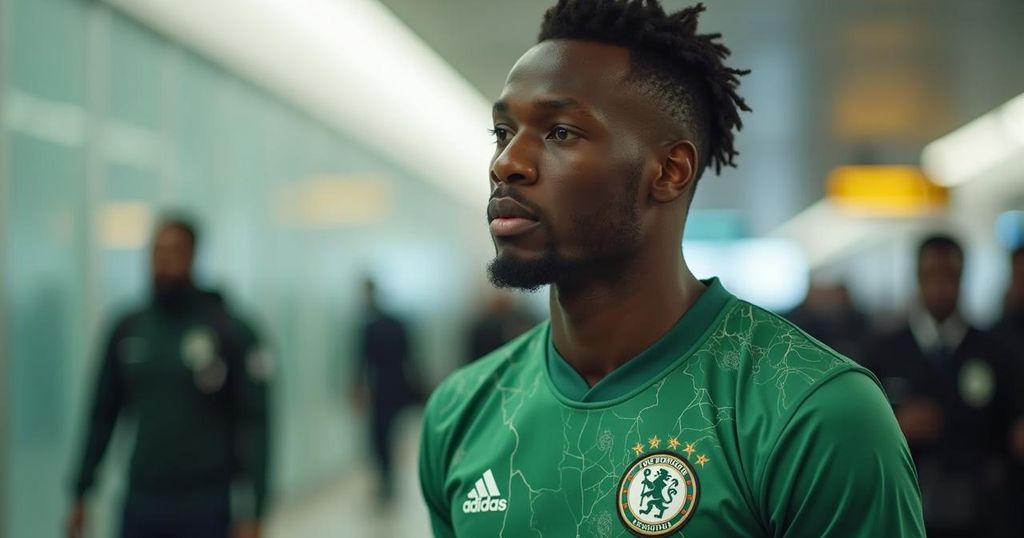Wilfred Ndidi and his Nigerian teammates from Leicester City have reported being held in dire conditions at Al-Abraq airport in Libya, after their flight was diverted from Benghazi. The Nigeria national team now threatens to boycott an upcoming match following allegations of government sabotage and premature denial of access to provisions, citing unacceptable treatment amid their ordeal.
Leicester City’s Wilfred Ndidi has expressed alarming concerns regarding the predicament faced by himself and his Nigerian teammates. They find themselves effectively trapped in Libya following an unexpected diversion of their flight intended for Benghazi. Instead, the aircraft landed at the inaccessible Al-Abraq airport, which is situated a significant distance from their original destination. The Super Eagles players report enduring a prolonged wait exceeding twelve hours without access to essential provisions such as food or water. Moreover, there are allegations suggesting that the Libyan authorities are deliberately obstructing their ability to participate in an upcoming Africa Cup of Nations qualifying match, reportedly in retaliation for prior grievances concerning “hostile treatment” they experienced during last week’s fixture. Consequently, the Nigeria national team has declared its intent to boycott the match as they remain confined within the Al-Abraq terminal without any opportunity to make alternative travel arrangements. Ndidi voiced his frustrations through social media, stating, “This is not football. Very embarrassing. Hostage to a national team. Disgrace.” Furthermore, Victor Boniface of Bayer Leverkusen lamented the dire conditions on Twitter, noting, “Been at the airport for almost 13 hours no food no wifi nowhere to sleep African we can do better.” William Troost-Ekong, a former Watford player currently in Saudi Arabia, provided a detailed account via X of their distressing situation. He indicated, “12+ hours in an abandoned airport in Libya after our plane was diverted whilst descending. The Libyan government rescinded our approved landing in Benghazi with no reason. They’ve locked the airport gates and left us without phone connection, food or drink. All to play mind games. He further emphasized, “We respect ourselves and respect our opponents when they are our guests in Nigeria. Mistakes happen but these things on purpose have nothing to do with international football.” Such a situation demonstrates a troubling disregard for the well-being of athletes and the integrity of the sport.
The ongoing tensions between Nigeria and Libya have culminated in a disturbing incident involving the Nigerian national football team, the Super Eagles. Scheduled to participate in an Africa Cup of Nations qualifier in Benghazi, the team faced an unexpected crisis when their plane was diverted to a closed airport in Libya. The lack of support and amenities from the Libyan government during this incident has raised serious ethical concerns regarding the treatment of visiting teams and the overarching management of international sporting events in regions facing political instability.
This incident involving the Nigerian national team serves as a stark reminder of the myriad challenges faced by athletes competing internationally, particularly in regions with potential political complications. The claims of being held hostage at the airport and the subsequent declaration to boycott the fixture underscore the urgent need for intervention from football governing bodies, as well as a reevaluation of protocols to safeguard player welfare in volatile environments.
Original Source: www.mirror.co.uk






